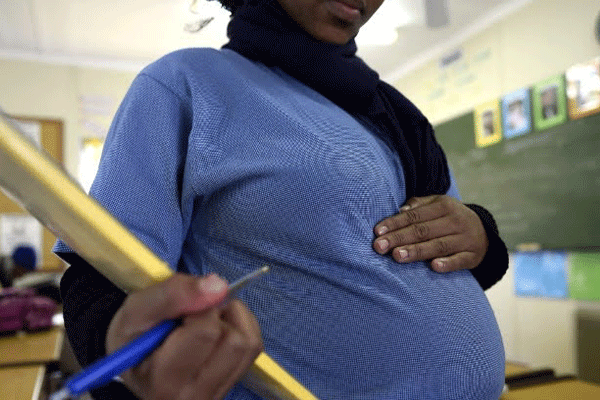Teenage pregnancies still big threat to girls’ education

Seventeen-year-old Patricia Soy*sat for her recently concluded Kenya Certificate of Secondary Examinations (KCSE) in the throes of late pregnancy.
She had to struggle to perform a tedious chemistry practice exam, which involved lots of manipulative skills, recordings and measurements.
A student in a day secondary school in Kajiado County, Patricia was among five other girls in her class who will soon become mothers.
While releasing the 2020 KCPE results last year, Education CS Prof George Magoha reported that about 200 out of 3,500 girls in primary schools who were found to be pregnant sat for the exam.
Various studies have shown that these losses of girls from schooling systems negate the vision of keeping girls in schools-with major negative impacts on their future prospects.
The Global Childhood Report 2019 shows that Kenya has the third-highest rate of teen pregnancies in East Africa. It estimated the teenage birth rate to be at 82 per 1,000 girls in the 15 to19 age group.
19th birthday
Overall, more than 13,000 adolescent girls drop out of school, pushed into early motherhood even before they are physically, emotionally or financially prepared.
Another report by the United Nations Population Fund (UNFPA) shows that 378,397 teenage pregnancies were recorded in Kenya between July 2016 and June 2017. Of these 28,932 occurred among girls aged between 10 to14 years.
Overall, one in five girls become mothers before their 19th birthday in Kenya, according to Ministry of Health data.
Narok, Kilifi and Homabay counties are among the most affected with four in 10 girls. In Elgeyo Marakwet, Murang’a, Nyeri and Nyandarua counties one in 10 girls become mothers.
Sadly, only two per cent of teenage mothers return to school.
“Teenage pregnancy has a great effect on education and affects the girls’ future and the economic development of a country,” observed Judith Okumu at the University of Nairobi in her research study entitled Effects of Teenage Pregnancy on the Academic Performance of Girls in Secondary Schools in Ukwala Ward, Ugenya Sub County Siaya County, Kenya.
Shame and stigma
Her study revealed that adolescent pregnancy also contributes to girls’ poor performance in school and final exams.
The study also showed that most underage mothers terminate their education for fear of shame, stigmatisation, and ridicule from the school and society and being rated as ill-mannered children.
The study also discovered that the environment and media had a significant impact on early pregnancy among girl students in high schools.
Other experts note that peer pressure and urbanisation are also at play in the increased cases of pregnancy among teenagers. “Urban culture- where parents have no time for their teenage children has a big impact on young adults. They have no one to guide them as parents chase for the elusive shilling in their daily hustles,” said Gladys Mate, a high school teacher and a student counsellor.
Mate said teenage girls experiment with sex quite early leading to all the unwanted pregnancies- compromising their future prospects.
Left behind
For Patricia, her future college prospects will have to be put on hold even if she passes her exams. She will have to grapple with the demands of early motherhood and its consequences, even as her classmates join university and other tertiary education institutions.
Researchers agree that teenage pregnancy limits their educational attainment and earning potential, thereby increasing the likelihood of poverty and perpetuating intergenerational cycles of poverty.
Another study carried out by Janet Miriti of the University College of London and Meshack Mutua of the African Academy of Sciences in Nzambani Sub-County in Kitui County found out that poverty, especially in rural areas is a major factor in teenage pregnancy.
Other causes of teenage pregnancies were parental negligence, drug abuse, rape and moral decay, peer pressure facilitated by technology, psychological problems and low education levels among parents.
In the study, teenage pregnancy was mostly concentrated among Form One and Two students affecting their academic performance with others leaving school completely.
The two studies suggest that teenage mothers should be given another chance in life and should not be judged harshly as some were victims of rape and assault.
Guidance and counselling should also be provided for teenage mothers to give them strength and hope to continue their education and get a bright future.
“Counselling will also help in their job skills and psychosocial development that will help them after their schooling and life ahead,” asserted Okumu.







